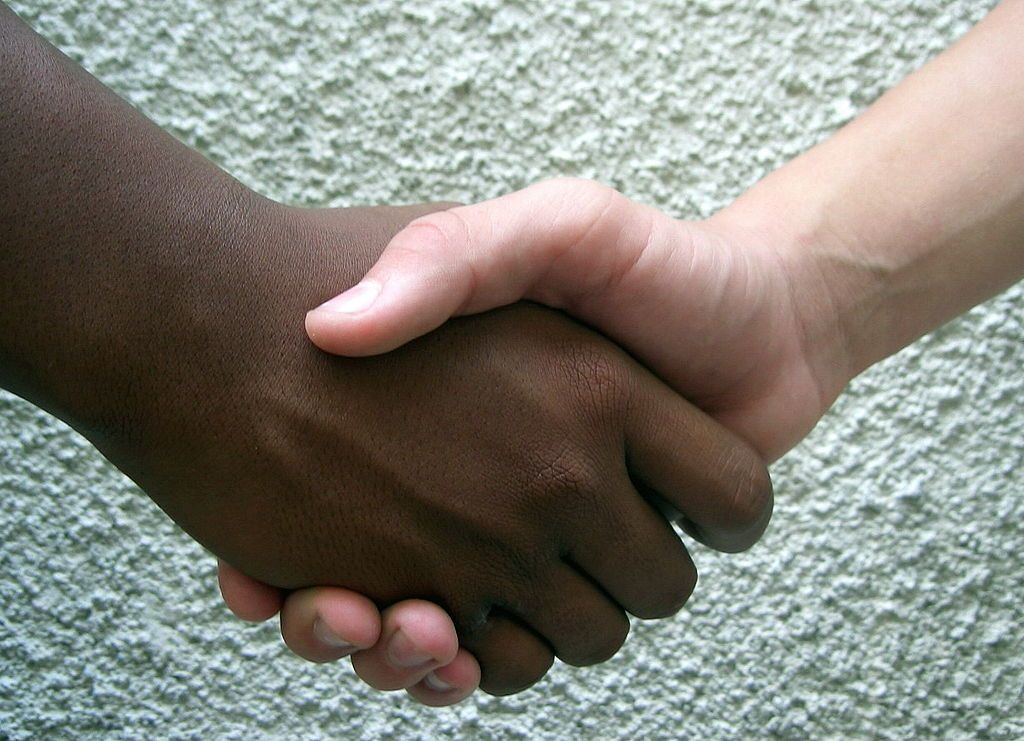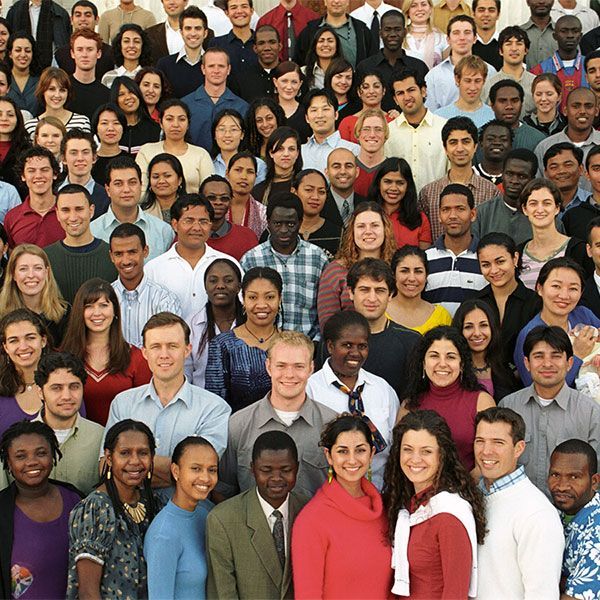The following is a submission from the Local Spiritual Assembly of the Bahá’ís of St. John's to the Newfoundland and Labrador Government's Ministerial Committee on Anti-racism.
The Bahá’í community of St. John’s would like to thank the Committee for the opportunity to contribute to such an important public consultation.
Within a relatively short period, historical circumstances and societal changes have prompted Newfoundlanders and Labradorians to confront issues of race. In the past two decades especially, the province has welcomed more and more people from all over the world. The impetus for this influx stems partly from genuine compassion for refugees. It also arises from the realization that our population is rapidly aging and shrinking. The reality is that the demographic makeup of Newfoundland is changing, and to foster a united province we must not only welcome diversity but embrace it.
At the same time, the nation’s conscience has been shaken by an increased awareness of the evils of residential schools, the ‘60s Scoop, forced resettlement and other injustices perpetrated against Indigenous people. Such is also the case with the growing awareness of how people of African descent in this country have been mistreated. So, on several fronts, we are faced with the necessity to work for racial amity and justice. If we don’t pay the issue adequate attention, we risk marginalizing people or further entrenching existing alienation.
In the 1980s, Newfoundland and Labrador welcomed many Bahá’ís who fled persecution in Iran. So, we know that this province has tremendous capacity for compassion and generosity. But ours is not a perfect society. Sometimes newcomers are met with indifference or worse. Sometimes people of colour who are native-born Newfoundlanders and Labradorians feel the sting of racism. We as a province cannot be content with the status quo, even if we have made progress.
What is most needed is an overarching principle that guides individuals, communities, and institutions in their quest for racial amity and justice. We submit that the most powerful principle for fighting racism is the realization that humanity is one.
Racial harmony is central to the message of Bahá’u’lláh, the Founder of the Bahá’í Faith. He proclaimed, “The earth is but one country and mankind its citizens.” So, in a sense, when Newfoundlanders and Labradorians welcome newcomers to these shores, we are welcoming brothers and sisters home. When we strive with love and good will toward reconciliation between Indigenous and non-Indigenous Canadians, we are striving to heal and make whole our Canadian family. The new realities of this province demand that we eliminate any residue of seeing our neighbours as “the other.”
For Bahá’ís, race is not the core of a human being’s identity. In an address to an audience composed of Black and White Americans at Howard University in Washington in 1912, ‘Abdu’l-Bahá – then the leader of the Bahá’í Faith - said, “If the heart is pure, white, or black or any color makes no difference. God does not look at color; He looks at the hearts. He whose heart is pure is better. He whose character is better is more pleasing.” At the same time, the concept of unity in diversity is central to Bahá’í belief. ‘Abdu’l-Bahá also wrote, “The diversity in the human family should be the cause of love and harmony, as it is in music where many different notes blend together in the making of a perfect chord.”
We are happy the government of Newfoundland and Labrador is making such a potentially valuable contribution to racial harmony in the form of this public dialogue. The test will be whether such dialogue leads to meaningful action on the part of every interested party.
At the grassroots
Much of the local Bahá’í community’s activities in St. John’s happen at the grassroots level. We focus on the education of children, junior youth, youth, and adults. We work in partnership with people of all faiths, regarding them as partners and protagonists in a two-fold effort to develop individual capacity and improve the conditions of society. In our community work, we have seen how children especially are hurt by racism. While children of many different nationalities in this province play together, study together and become close friends, there are occasions when some are mocked because their hair is curly, called racist names, told they are dirty or physically bullied. One mother of inter-racial children who had been both physically and emotionally bullied told us the problem goes beyond even what we normally think of as racism: “No offence to anyone but oftentimes racism is hidden, and no one knows what could sound like racism even if they didn’t intend it to be.”
In a letter addressed to American Bahá’ís in the wake of the George Floyd murder, the elected leadership of the international Bahá’í community wrote the following:
“Racism is a profound deviation from the standard of true morality. It deprives a portion of humanity of the opportunity to cultivate and express the full range of their capability and to live a meaningful and flourishing life, while blighting the progress of the rest of humankind. It cannot be rooted out by contest and conflict. It must be supplanted by the establishment of just relationships among individuals, communities, and institutions of society that will uplift all and will not designate anyone as “other”. The change required is not merely social and economic, but above all moral and spiritual.” - Universal House of Justice
Embedded in the above quote are some key concepts relevant to the current discussion. Government alone cannot eliminate the blight of racism. While government policy is important and plays a key role, eliminating racism requires a coherent effort among three protagonists in the quest for a just society: the individual, the community, and the institutions of society.
The individual
In a submission we made to the provincial government in 2016 about how to retain newcomers to our province, we noted that while some immigrants we interviewed felt Newfoundlanders and Labradorians were friendly, they said that they were rarely invited into their homes. We encourage our fellow citizens to think about the powerful impact that simple hospitality can have in promoting racial harmony. For one thing, it gives parents an opportunity to model racial amity for their children. It gives children of different races a chance to develop friendships outside of a school or organizational setting.
It is perhaps inevitable that as people of different races interact more often with each other, there will be tension. Someone will say the wrong thing. Someone will be offended. To minimize these occasions, it can be helpful if we honestly examine our own thoughts and attitudes, recognizing and confronting any hidden biases or prejudices we may have. It is also important to listen to people who have experienced racism with the aim of understanding. And it is also vitally important that we purify our speech, even when people who might be offended are not around. Tolerance of racist comments or jokes in private can enable the persistence of harmful attitudes.

The community
The experience of the worldwide Bahá’í community has also demonstrated that, beyond social fellowship, the act of working together in common purpose for the betterment of neighbourhoods and towns can bind hearts together in a profound way – especially if such efforts are informed by an appreciation of the oneness of humanity. As the international Bahá’í governing body wrote, “In an environment of love and trust born of common belief, practice and mission, individuals of different races will have the intimate connection of heart and mind upon which mutual understanding and change depend.” The community and the institutions of society can be very helpful in providing opportunities for such common service.
We cannot segregate the human heart from the environment outside us and say that once one of these is reformed everything will be improved. Man is organic with the world. His inner life moulds the environment and is itself also deeply affected by it. The one acts upon the other and every abiding change in the life of man is the result of these mutual reactions." - Shoghi Effendi
Together, the individuals and groups that comprise society bear a responsibility to help create the social conditions for racial amity and justice. As admirable as it is for an individual to reform his or her thoughts, words and actions, such progress is not enough to effect lasting reform in society. There must be collective action. Together, we must examine the social forces that might impede equality, justice, and inclusion. We must examine, for example, the material and social barriers that might exist for minority groups to education, to employment and to meaningful leadership positions in society. It is not enough for the community to express its belief in the goals of equality and inclusion; it must help provide the tangible means for achieving them. Sometimes that will mean taking an open-minded and penetrating look at how our society functions.
One force that characterizes western society is an adversarial mindset. It permeates our public discourse. By its very nature, it creates an us-and-them mentality, making enemies out of people who could be allies. We offer the following observations from our international governing body, given in another context but still applicable to our own.
"There are many well-meaning people who are striving to improve society by fighting its evils, which usually means contending against individuals, groups, or institutions who are seen as oppressive, unjust, or corrupt. Yet no matter how high-minded a particular cause might be, if it is advanced through contention and confrontation, it merely provokes and intensifies the flame of a countermovement initiated by others who act on what they consider to be their own high-minded beliefs. Real solutions remain elusive. - Universal House of Justice
We implore all three of the protagonists – the individual, the community, and our institutions - to avoid counter-productive adversarial approaches and embrace meaningful consultation rooted in humility, courtesy, mutual respect, purity of motive, a sincere quest for truth, and a strong belief in our common humanity.

Institutions
One of the greatest contributions that institutions in Newfoundland and Labrador can make to promote racial amity and justice is through education. We acknowledge, for example, the provincial government’s positive efforts to improve content about Indigenous people in the school curriculum. We also note there has been more emphasis on culture and diversity in the curriculum. The government has also introduced intercultural competency for justice-sector employees. All these developments are commendable and demonstrate progress. For several years now, the government has also been making a concerted effort to convince newcomers to remain in the province after they have received an education or become citizens. We encourage the government to do all within its power to help international students, immigrants and refugees thrive here. This encouragement is not to suggest that government alone is responsible. We must be careful not to underestimate the determination and hard work of minority groups to improve their own conditions. Empowerment is both something that comes from within the individual and something that is aided by equitable policies, programs and laws.
All of society’s major institutions – government, schools, colleges, university, law enforcement, the courts, the media, and religions, to name a few – have roles to play. May an overarching belief in the oneness of humanity and an approach of respectful consultation permeate all their efforts in this noble cause.
The path to racial amity and justice begins in the heart of the individual Newfoundlander and Labradorian; the path widens as that individual works for the betterment of his or her community, and it is reinforced by the policies, practices, laws, and example set by our institutions. It is our sincere prayer that all three protagonists in the quest for racial unity and justice in this province will experience success upon success.
